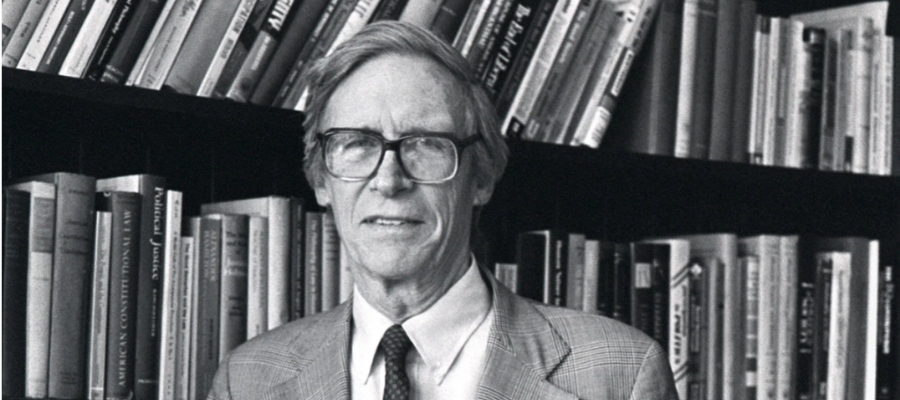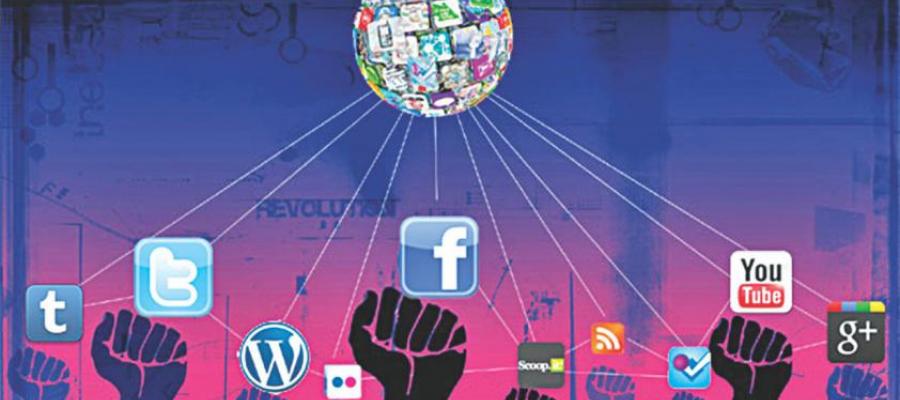Rawls
13
Dec 2008
When I was in graduate school at Cornell from 1964 until 1968, and for some time after that, American philosophy was dominated by two Harvard philosophers, W.V.O. Quine and John Rawls. Quine's books were required reading not only in the philosophy of language, but also in courses in metaphysics and ontology and epistemology, where his radical extensionalism seemed to be the starting point for rethinking everything. After World War II, the big issues on the ethical and political sides of philosophy seemed to get little attention in American philosophy. That side of...
Read moreCompromise and Slavery
01
Nov 2017
I happen to be in the middle of teaching W.E.B. Dubois' amazing work The Souls of Black Folk to Stanford freshmen. It talks a lot about the failures of Reconstruction and the rise of Jim Crow from an on-the-ground perspective. In addition, we’ve just done an episode entitled Race Matters, which got me reading Chris Lebron’s fine book, The Making of Black Lives Matter: A Brief History of an Idea. If you haven’t read either book, it is worth reading both, but definitely don't miss Dubois since it is essential reading for every...
Read moreWhen Do False Beliefs Exculpate? (Pt. II)
08
Jan 2021
For last month’s pandemic puzzle, I posed the title question of this blog, noting that I meant it in a moral sense (rather than a legal one): When do false beliefs exculpate? The idea is that sometimes having a false belief exculpates one of a wrongdoing, but other times not—and perhaps even the opposite. My example of a false belief that does exculpate was a vet who accidentally puts down the wrong dog, because it looks almost identical to the one she was in fact supposed to put down: maybe she was careless (which is bad), but her false belief about the identity of...
Read moreHumble Disagreement
15
Mar 2018
Should you cling to your beliefs even when others disagree? Or should you reconsider your beliefs whenever they’re challenged? Is it possible to disagree without being disagreeable? You might think that the answer to this last question is a resounding “no!” That’s because, these days, people too often try to shut up and shout down those who disagree with them. Now I don’t mean to deny that, to some extent, it’s always been that way. Why did Cain kill Abel? Because they disagreed over some silly sacrifice! And that was just a family squabble. Still, that shows how it...
Read moreSleeping, Dreaming, and the Well-Lived Life
12
Jun 2016
This week we're staying up and thinking about Sleep. We spend so much of our lives asleep, but we philosophers have had very little to say about it. Maybe that's becayse Philosophy is mostly about things we’re conscious of -- our experiences, our choices, our beliefs. We’re mostly NOT conscious when we sleep, so you might wonder who cares, really. Well, philosophers care about what makes us who and what we are. So is sleep is a big part of who we are? I’ll give you dreaming as philosophically interesting. How can we...
Read moreThe Politics of Architecture
06
Oct 2023
Do buildings express political viewpoints? Some buildings do, of course: think about monuments to fallen soldiers, city hall buildings, or public housing. But is architecture always political? When it comes to pretty buildings, isn’t a flying buttress sometimes just a flying buttress? Clearly, there’s plenty of architecture that makes political statements (as monuments do) or implies political positions (as city halls do). Think of all that neoclassical architecture imperialists love so much: impressive columns, high ceilings, huge steps where the...
Read moreThe Power and Perils of Satire
26
Jul 2015
Satire involves the use of humor to ridicule and shame people or institutions. It’s a potent tool for exposing society’s ills, especially when it comes to politicians and other powerful people. It's the perfect way to take them down a peg or two. That’s the power of satire. But what about its perils? Satirizing the rich and the powerful is great, but what about when satire is used to attack the poor and downtrodden? When the Philosophy Talk team started to discuss the topic satire in preparation for this week’s show, there was major disagreement...
Read moreShould White Artists Paint the Body of Emmett Till?
31
Mar 2017
The image above is a painting by Dana Schutz currently on display at the Whitney Biennial exhibition. Since the painting depicts Emmett Till in an open casket, the painting naturally is attracting some controversy. But does it matter that Dana Shutz is white? Should your race restrict what you're allowed to paint? It's easy to hear this sort of criticism of Schutz—that white people shouldn't produce art about poignant Civil Rights icons, and dismiss the criticism as needless and overdone political correctness. I had this impulse too. But after reading and reflecting on this letter by artist/...
Read more#FrancisOnFilm: Brexit
24
Jan 2019
The British film Brexit, which premiered in the US on HBO on January 19th, flirts with a critical problem in the ethics of journalism: is it permissible to fill gaps in a story with fictionalized accounts of events? According to the Code of Ethics of the Society of Professional Journalists the answer is a resounding "no!" Seeking and reporting truth is the first principle of journalistic ethics; journalists are admonished never to "misrepresent or oversimplify in promoting, previewing or summarizing a story." But Brexit is not a documentary. It is a retelling, sometimes fictionalized...
Robots and Sexthics
05
Aug 2017
Robotic yet eerily human-like, sex robots and their proliferation will promise a new revolution in sex. But what are the benefits of this technology and its potential ethical risks? The answers are unclear, yet urgently need to be discussed, as demonstrated by this article from The Guardian. Advocates and creators of sex robots believe that sex robots provide a valuable service to people who are lonely, disabled, elderly, or have had a traumatic sexual experience. Some suggest that the manufacture of sex robots could also mitigate rape and sexual assault, since rapists or sex offenders have...
Read moreComedy on the Edges
14
Jan 2020
Is there comedy so offensive that it shouldn’t be allowed? Do some jokes encourage bigotry and hatred? Could edgy comedy ever be good for society? These are some of the questions we’re asking in this week’s show on Comedy and the Culture Wars. It’s our first new show since Ken died last month (apart from the tribute episode we made), so I hope Ken would be happy to see that we are keeping the torch lit and his legacy alive. We’ve all heard the complaint that “snowflakes” and “political correctness” are ruining comedy. There are some people, the complaint goes, who are just way...
Read moreRacial Profiling and Implicit Bias
18
Jun 2017
Like many people, I think the practice of racial profiling—the police or security practice of targeting individuals for investigation because of their race, ethnicity, or national origin—is obviously wrong. What’s less obvious, to me at least, is exactly why it’s wrong. It’s not that profiling by itself is problematic. But here I’m thinking of the kind of complex profile investigators may come up with by gathering evidence from the scene of a crime, e.g. a murder. Some of that evidence will be purely physical in nature, but there might also be...
Read moreBlack Solidarity
05
Feb 2012
February is Black History Month. So we thought it might be a good time to do an episode on Black Solidarity. Now I admit that this topic may seem to be a bit, shall we say, 20th century. When this country still suffered from rampant racism, it made perfect sense for black people to band together on the basis of their shared history and experience to fight it. But now, in the 21st century? in the age of Obama? Why should we bother with matters racial anymore? If you have such a reaction, you may hold the view – a view which I don’t really...
Read moreMeaning from Meaninglessness
05
Apr 2005
Irv Yalom was a great guest. We had a fun, lively conversation that went back and forth between philosophy, biography, and psychotherapy. You can hear the archived version of the episode here. I want to expand on a topic that we just barely touched on during the episode. I discussed it briefly but not in great detail in my pre-show post. I'm thinking about where values and meaning come from and whether a metaphysics anything like Schopenhauer's has the resources to make room for value and meaning. I think that the answer is yes. ...
Read moreWe Don't Decide Who We Love
02
Mar 2017
We often think of a love as something natural and powerful—a mysterious feeling we experience spontaneously, deep in the recesses of our essential selves. But our love, and our capacity to love, may have a lot more to do with our society than we acknowledge. Recently on Verso Books's blog, Dalia Gebrial published a powerful critique of how colonialism complicates love. For Gebrial, love—like any other interaction between people in society—is encoded within existing power structures. Gebrial writes: Embedded within the constituent discourses of love—of desirability, emotional labour,...
Read moreOn Being a Wife
03
Apr 2010
What is a wife? From a philosophical point of view, it looks like the word `wife’ is a predicate and so should stand for a condition, presumably one that humans meet or don't meet at times. And so the first question is, which condition? And then the next questions would be about the importance of the property, its relation to issues of equality, social structure and the like. But the first question isn’t so simple. When we read Marilyn Yalom’s book, A History of the Wife, it seems pretty clear that the word `wife’ (and the words in other languages...
Read moreWhy I am not a Wittgensteinian
03
Mar 2007
Today's episode is about Wittgenstein. Our guest will be Juliet Floyd. Many regard Wittgenstein as perhaps the greatest philosopher of the 20th century. I don't share that view. But there's no denying that, for a man who published only one book during his lifetime -- a book that he later basically repudiated -- he really did have a tremendous impact on 20th century analytic philosophy. Indeed, Wittgenstein has to be regarded as one of the great founding fathers of 20th century analytic philosophy, especially of the so-called linguistic turn in philosophy. Now I don't profess at all to be...
Read moreIs There a Case for Bullshit?
13
Feb 2018
Harry Frankfurt first published "On Bullshit" in 1986, putting forth a theory that claims bullshit is "indifference to the truth." Because bullshit undermines our ability to tell truth from falsity, according to Frankfurt, silence is better than bullshit. Stefano Zorzi challenges this view, arguing that bullshit can help us reach the truth. Zorzi argues that we cannot always know what is truth before we say or discover it—if Galileo had adhered to Frankfurt's principle of silence over "bullshit", he would have never found the factual ground to support Copernicus. Do you think...
Read moreThe Staying Power of Poetry
08
Apr 2022
I was delighted when Louise Glück, one of the great poets of our age, won the Nobel Prize in Literature. We featured some of her poems on "The Examined Year: 2020" and I wrote about one of my all-time favorite Glück poems, "Ithaca," for that show. I share my thoughts about that poem again for this week's episode, "Why Poetry Matters," with none other than Louise Glück as guest! Ithaca The beloved doesn’t need to live. The beloved lives in the head. The loom is for the suitors, strung up like a harp with white shroud-thread. He was two people. He was the...
Read moreWhy America is not a Nation
19
Jun 2018
America is not a nation. It is only a place. Or so I will argue in this blog entry. And this fact, I claim, has great significance for understanding the potential demise of the republic we once dreamt of. Why do I say that? Well, there's a short answer and a slightly longer answer. The short answer is that too many Americans hate, or at least really dislike other Americans for us to count as a nation. The longer answer is similar in spirit, but will take some work to spell out in detail. Spelling out the longer answer requires me to say a bit more about...
Read moreGood, Evil, and the Divine Plan
19
Dec 2015
This Sunday we're asking about Good, Evil, and the Divine Plan.
The question is: if God knows all, is all-powerful, and is benevolent, why did He create a world with suffering, evil and injustice in it? That’s what philosophers call “The Problem of Evil”.
The first and best statement I know of is from Epicurus, around 300 B.C.,
Is [God] is both able and willing [to prevent evil],
Then whence cometh evil?
Is he neither able nor willing...
Against Scientism
09
May 2025
Mary Midgley, one of the so-called Oxford Quartet (along with Elizabeth Anscombe, Iris Murdoch, and Philippa Foot), was one of the UK's most prominent public intellectuals. She didn't publish her first book until she was nearly 60 years old, but she wrote and spoke prolifically about the value of the humanities, about environmentalism, and about science. In fact she loved science so much that she became a vocal critic of scientism—the idea that science can explain everything. Science can explain a whole lot of things, incredibly well. But it will never be able to settle questions in...
Read morePolitical Activism in the Digital Age
11
Feb 2015
This week, we're asking about Cyber-Activism -- social or political activism mediated and enabled by the use of cyber-tools like email, Facebook, Twitter, Youtube, podcasts and so on. The internet has changed practically everything – from the way we work to the way we play. It stands to reason that it would change the way we engage in social and political action too. Remember how hard it was to organize a spontaneous rally before the internet? You had to knock on doors, hand out fliers, hang posters all over the place. Today, you send out a tweet;...
Read moreDoes Work Give Our Lives Meaning?
19
May 2017
The possibility of a world without work is making plenty of people nervous: what would it look like, will it actually be good for us, will life even be meaningful anymore? In a recent editorial for The Guardian, Yuval Noah Harari has made the case that we don't need to fret, at least not when it comes to having meaningful lives. As Harari sees it there are already enough examples of meaning-making in the world—ranging from religious belief to Pokémon to consumerism—that we'll be able to impose meaning onto the world even if we're rendered obsolete as workers. What do you...
Read more#FrancisOnFilm: Last Black Man in SF
24
Jul 2019
The Last Black Man in San Francisco is one of the best films I’ve seen recently. [SPOILERS BELOW!] It was my favorite from this year’s Sundance, where it won the best director award for Joe Talbot and a special jury award for creative collaboration. It deserves to be seen nationwide, not just by people in San Francisco who care about the future of a city that was once one of the country’s most diverse. The scenes of skateboarding around San Francisco are magical, and the offhand remark “you’re not allowed to hate a city you don’t love” perfectly captures the sensibilities of someone who...






















